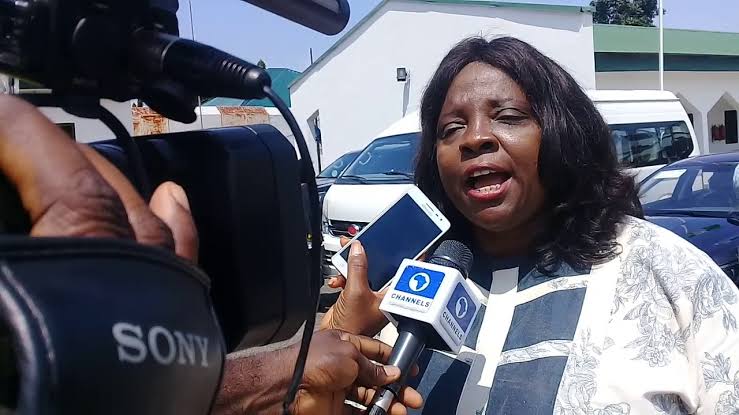Prof. Kate Azuka Omenugha, Anambra State Commissioner for Basic Education. Photo Credit: Orient Daily
What would have been a two weeks holiday is now stretching for about two months, with students and teachers forced to stay away from the classroom as the novel coronavirus, commonly known as COVID-19, spread rapidly across Nigeria.
The Federal Ministry of Education, alongside other state education ministries, have introduced programmes for pupils and students using mobile apps, websites, radio and TV. The overriding goal is to help the young learners stay active and take on lessons that will engage their brains.
Meanwhile, education authorities in Anambra state feel it is important to make COVID-19 education a subject in its curriculum for primary and secondary schools.
Prof. Kate Azuka Omenugha, Commissioner for Basic Education in Anambra, told journalists in the state capital, Akwa, that teaching pupils and students the subject would establish a culture of basic hygiene among them, but also create an opportunity to teach the learners about prevention measures in line with health officials’ efforts to contain the spread of the pandemic.
According to Nigeria Centre for Disease Control (NCDC) report on May 25, 2020, the deadly virus, which was first reported in Lagos in late February, has affected 7, 526 of which 2174 cases have been discharged and 221 deaths recorded. Anambra has recorded eight confirmed cases of the disease so far.
”We will also domesticate covid19 education by introducing it into the school curriculum so that people doing history can talk about the history of fluids all over the world; those in biology can talk about personal hygiene and so on,” Prof. Omenugha is quoted as saying by local media.
“So we are trying to see what we can put into the curriculum in relation to covid19. We are also decongesting the classrooms to make sure there is enough space for pupils to maintain physical distancing.”
The commissioner said teachers are gradually returning and trying to get schools ready for operations again, adding that teachers are also taking health advisories on hand washing and others to the walls of classrooms.
But she was quick to point out that schools will not resume until federal authorities give the nod for learning activities to start again.
Omenugha also said the state would include sign languages and other bespoke strategies into its ongoing educational broadcasting programmes to meet the needs of more than 500 pupils with hearing impairments. The state introduced radio and TV programmes since April 1.
Teachers would receive training on prevention measures but also on method and practice of teaching so as to be able to meet the needs of their pupils and students amid the pandemic.
Share this post





Be the first to comment on this post